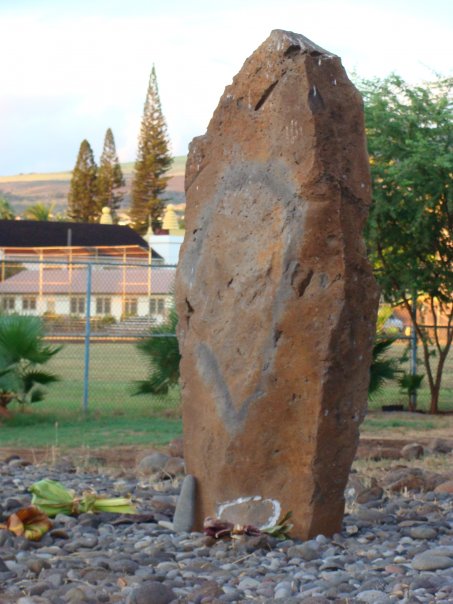Mokuhinia Restoration at Moku’ula Focus of Meeting
By Wendy Osher
The proposed Mokuhinia Ecosystem Restoration Project at the site known as Moku’ula in West Maui, is the subject of an upcoming public scoping meeting.
The meeting, hosted by the US Army Corps of Engineers and Maui County, will run from 6:30 to 8:30 p.m. on Wednesday, May 30, at the Lahaina Civic Center.
Loko o Mokuhinia was a 17-acre pond that is cited in Hawaiian traditions as the home of Kihawahine, a deity in royal lineage, and guardian for the sacred Mokuhinia ponds and Moku’ula island.
The inland island of Moku’ula was the royal residence of King Kamehameha III (Kauikeauoli) from 1837 to 1845, when Lahaina served as the capital of the Hawaiian Kingdom.
In 1845, the capital moved from Lahaina to Honolulu. Later, in the early 20th century, a public project was implemented to fill Loko o Mokuhinia; and in 1918, an executive order established the site as Malu’ulu o Lele Park.
The Mokuhinia Ecosystem Restoration Project is designed specifically to address the restoration of Loko o Mokuhinia, according to a letter from Mayor Alan Arakawa’s Executive Assistant, Zeke Kalua, to parties of interest.
In the letter, Kalua states that the restoration project is “one component of a larger effort by the County of Maui to preserve and restore the overall site.”
The purpose of the project he said, “is to restore the aquatic ecosystem functions and processes of Loko o Mokuhinia to the extent feasible, given the current development and alteration in the project area.”
As part of the feasibility study, the US Army Corps of Engineers will evaluate opportunities to conduct aquatic ecosystem restoration by producing a feasibility report and conducting an integrated environmental assessment.
Input is currently being sought from affected agencies at the federal, state and local levels including: Native Hawaiian organizations, individuals, and practitioners.
The purpose of the upcoming meeting, Kalua said, “is to inform the public about the project, present the preliminary statement of Purpose and Need, describe conceptual design considerations, and gather information from the public about important issues and local concerns.
Public comment will be accepted as part of the meeting. The public is also invited to submit comments and questions via mail or email to: Athline Clark, USACE Honolulu District, CEPOH-PP-C Building 230, Ft. Shafter, Hawaii 96858-5440, or Athline.M.Clark@usace.army.mil.
To be considered in time for the feasibility report and environmental assessment, comments must be received no later than August 1, 2012.










